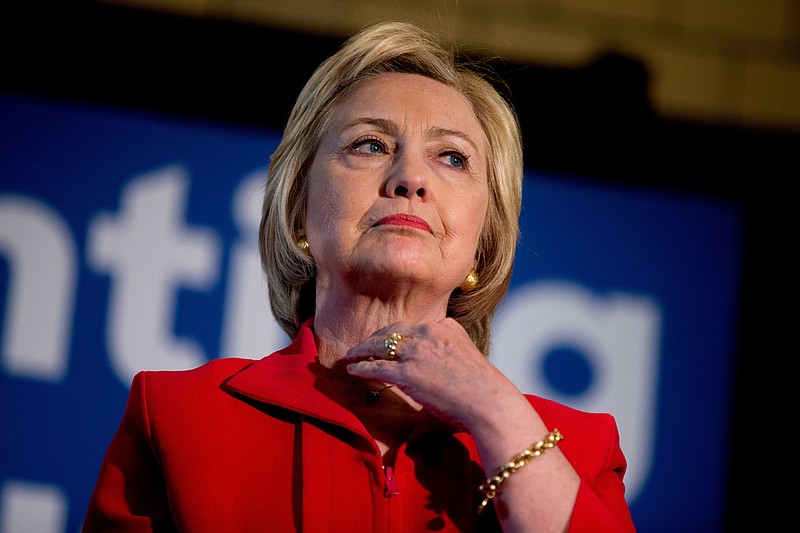It's getting harder to hide Hillary Clinton's dishonesty and duplicity under a blizzard of denials, blame-sharing and minimizing.
A year-long audit of her use as secretary of state of an unsecured email server by the State Department inspector general upbraided the Democratic presidential front-runner Wednesday. The report noted a number of inconsistencies in what she said and what she did, in what she said and what the law was, and in what she said and what was the truth.
Only in such an unusual political year could a candidate survive such a report and expect to remain viable. But voters who consider her candidacy in the fall should surely understand what they get if they elect her - a president to whom truth is a stranger.
The 78-page report, perhaps most importantly, said Clinton never sought permission to use a private server, a charge she attempts to deflect with the "but everybody knew about it" defense on her campaign website.
"Secretary Clinton had an obligation to discuss using her personal email account to conduct official business with [State Department] offices, who in turn would have attempted to provide her with approved and secured means that met her business needs," it said, adding that agency officials "did not - and would not - approve her exclusive reliance on a personal email account to conduct Department business, because of the restrictions and the security risks in doing so."
In conducting that business, she also broke the rules, the report said.
"Secretary Clinton should have preserved any federal records she created and received on her personal account by printing and filing those records," it said. "[B]ecause she did not do so, she did not comply with the department's policies that were implemented in accordance with the Federal Records Act."
Not only that, but the report notes that once she acknowledged in March 2015 that she had hidden her emails, she failed to turn over all those required by law.
Though Clinton's defense was that, eventually, she "provided all my emails that could possibly be work-related," the watchdog agency noted there were gaps in both sent and received messages in her first months as secretary, though she unquestionably was transacting State Department business during the period.
The former first lady also has said no government information was at risk because her email server was not vulnerable to attacks, but the report indicated attempts had been made to hack into it. Whether those attempts were successful, it said, was beyond the scope of the audit.
However, Clinton was sent a March 2011 classified memo that warned of "a dramatic increase since January 2011 in attempts by [redacted] cyber actors to compromise the private home e-mail accounts of senior Department officials."
It further noted that State Department technology officials had said she "never demonstrated to them that her private server or mobile device met minimum information security requirements."
Once her private server was exposed, Clinton feigned cooperation publicly, saying earlier this month that she is "more than ready to talk to anybody, anytime" about the emails. But the report said she and her top aides would not meet with the Office of the Inspector General to answer questions.
By Wednesday, when the report was released, the best her team could do was weakly respond that previous secretaries of state - including Colin Powell, under President George W. Bush - had done something similar. But even that claim was covered by the watchdog agency.
Unlike her, Powell used both a public and private server, it noted. And where he received two sensitive emails, classified at the lowest level, she received more than 2,000, with dozens classified at the "secret" and "top secret" level. Further, it said, while policies governing email during Powell's time were "very fluid," by the time she had the job, "the Department's guidance was considerably more detailed and more sophisticated."
In hindsight, Clinton admitted a year ago that using the private email server was not a good idea. But beyond that, many of her public pronouncements on the issue have either stretched the truth, been flat-out wrong or clearly were lies.
Now the inspector general's report has confirmed it.
It's no wonder the most recent NBC News/Wall Street Journal poll found that only 19 percent of Americans believe Clinton is honest and straightforward, 16 points below what it finds for Republican front-runner Donald Trump.
The poll also revealed the words voters most associate with her are "liar," "not trustworthy" and "scandals."
Voters should carefully consider whether a candidate with those attributes is worthy of the highest office in the land.
